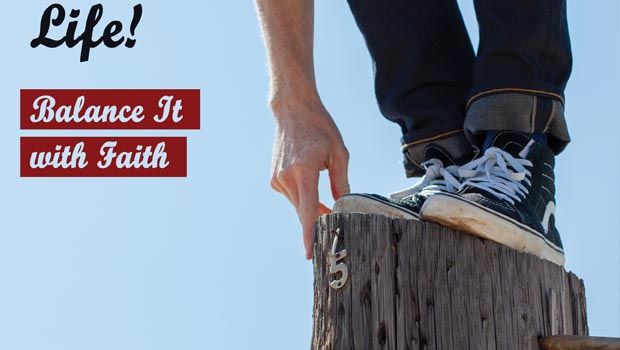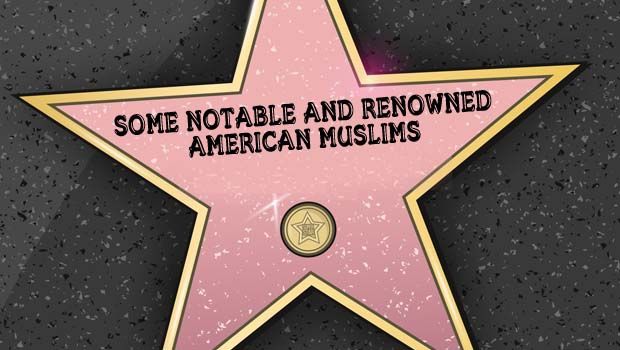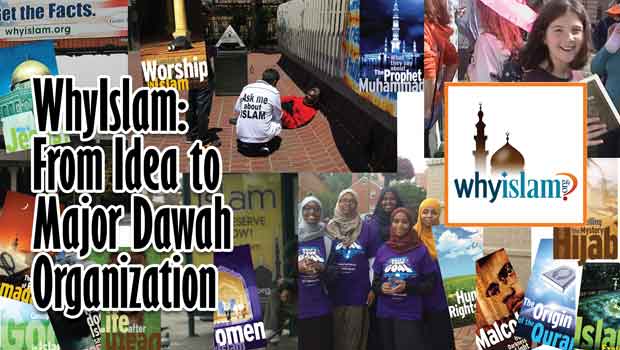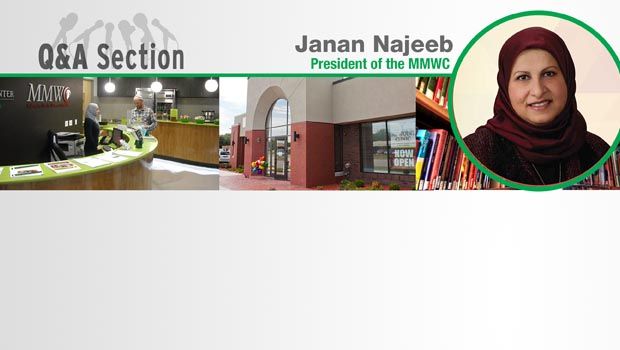It’s easy to get overwhelmed with life — school, career choices, family, friends, social activism, political involvement, worship, etc. Sometimes you just wonder, “where is the right balance.”
Being a young American Muslim means navigating social, political, cultural, and personal challenges
The Quran and the teachings of the Prophet (peace be upon him) don’t just lay out a simplistic or doctrinaire formula to follow for balancing one’s life because human beings are complex, diverse in our demographics and personal attributes. Rather than giving a formula, the Quran and Sunnah of the Prophet (pbuh) give us guidelines on how to tackle the personal, social, spiritual, cultural, political, and occupational challenges in our lives.
Inspiring Social Change
It all begins with one’s connection to Allah. That connection, revisited five times a day with daily prayer, is the foundation for the right spiritual orientation that serves as the basis for balancing every other aspect of one’s life. An important result of the right spiritual orientation, related to the social, political, and cultural aspects of life, is social activism. When faith becomes fully absorbed and embraced, it not only becomes a means of change in the individual, but a means to change the society he/she lives in as well.
I recently read and was inspired by the biography of Badsha Khan (1890 – 1988), the Pathan social worker and activist who founded the non-violent volunteer social group Khudai Khidmatgar (Servants of God) and established schools/literary centers throughout the forsaken Northern Indian Frontier. This was key to changing the cultural stagnation of his people and bringing about India’s independence from British colonialism. Even Gandhi was a fan and joined forces with him, calling him an “unquestionable man of God.” Badsha Khan was indeed a man of faith, and that faith became a catalyst for change in him, and then for the society around him.
A key to finding balance in your life with your career is just finding what makes you happy, and being excellent at that
When Pope Francis visited America last year and gave his historic speech to congress, he mentioned Dorothy Day amongst his four most notable figures in American history that were so vital for making this country great. Dorothy Day (1897-1980) was a convert to Catholicism, a journalist and social activist who started the Catholic Worker Movement. This became the foundation for the many hundreds of soup kitchens and other Catholic charities we see around the country today. During her time, anti-Catholic sentiment was very high. But with the establishment of many Catholic orphanages, schools, and hospitals, all building blocks of positive social change, the Catholic religion became “normalized,” woven into the fabric of American culture.
The social activism of people like Badsha Khan and Dorothy Day is very inspiring, and is exactly the kind of contributions that young Muslims of America can offer today. No one is more equipped with creativity, energy, intelligence, and American authenticity to “normalize” Islam and combat the current trends of Islamophobia, than the Muslim youth of America today. At the same time, their social activism can also serve to make the country a better place for all Americans. Not everyone needs to be a Badsha Khan or Dorothy Day, but part of finding the balance in one’s faith is using it not just as a means of self-improvement, but improvement and bettering of the society you live in as well. The Prophet (pbuh) said, “the best people are those who are the most beneficial to others.”
Identity: ‘O My People’
The reason that the likes of people like Badsha Khan and Dorothy Day were so successful is that they were able to see their fellow Indians and Americans, respectively, as “their people.” This is the prophetic spirit that serves as a most essential aspect of embracing an identity that is conducive for social change, and balancing between one’s Muslim and American roots. I say it is the prophetic spirit because all throughout the Quran, the prophets (peace be upon them) addressed their people as “O my people” (ya qawmy). That is a term of endearment, and a term that suggests belonging to, and identification with, the very people they were addressing. This despite the fact that the people they were addressing were mostly pagan or polytheist. Thus, it is possible to belong to a people, feel deep concern for their welfare, and have feelings of affection for them even if they don’t share your religion. They may not be your ummah (religious community), but they are a part of your qawm (people).
Faith should not just inspire how to interact with and change the larger society you live in, but how you see yourself and your place in that larger society as well
A question then arises. How many of our Muslim youth can look at their neighbor, be he/she ethnically, demographically, racially and/or religiously different, and truly, honestly feel in their hearts that they are “my people.” Perhaps a more important question follows: how can we be a catalyst of social change and benefit for them if we don’t feel that belonging, identification, and affection? And how can we have a balanced approach to a Muslim-American identity if we don’t embrace that? Faith should not just inspire how to interact with and change the larger society you live in, but how you see yourself and your place in that larger society as well.
Political Involvement
Political awareness and engagement on local, state, and national levels are essential to giving Muslims the voice they need to achieve relevance and consideration of our interests on the national level. Interestingly, the Prophet (pbuh) stated that using one’s voice to instigate change for the better is a religious obligation. He said, “When one sees a wrong, let him change it by his hand, and if he cannot, then by his tongue…” The tongue is what produces voice. Tasweet in the Arabic language means to produce a voice, but it also means to vote.
Many Muslims may not see political involvement as a necessary part of faith — and it isn’t. But producing change with one’s “voice” is, and there is no greater or more effective way of doing that than voting. Especially now, when the country’s soul is essentially up for grabs in this historic election. Young Muslims have many opportunities for more political involvement, whether it be on the local or national level. Organizations such as MPAC and CAIR are good places to start. Regardless of the approach, having a strong political awareness and voice is a key component to a faith-driven balanced life for the American Muslim.
Aim High and Pursue Your Passion
I once gave a talk about career choices and was approached by a well-intentioned “uncle” afterwards. He told me that this idea of pursuing one’s passion as a life career choice was ridiculous, and that I did not understand the “rule of fours.” I asked him what that was, and he told me in his culture you are either a doctor, lawyer, engineer, or failure. Yup – that’s it — four options. Unfortunately, this kind of sentiment is all too pervasive in the Muslim community. If everyone is a doctor, lawyer, or engineer, not only would that create imbalance in our communities, but psychologically it would create imbalance in anyone who is not naturally passionate about those fields. A key to finding balance in your life with your career is just finding what makes you happy, and being excellent at that. Muhammad Ali was not a doctor, lawyer, or engineer, but he became an honorable and beloved man by being true to himself and sincere in his faith; and he pursued his passion until he became great at it. American Muslims need to follow that example, and aim high in their careers. The Prophet (pbuh) said at the end of a longer hadith, “…If you ask of Allah, ask Him for Firdaus [the highest place in Paradise]” (Sunan Ibn Majah). We can infer from this that we are meant to aim high in all our endeavors. In fact, of the three dimensions of faith — Islam, eman, ihsan — ihsan is the pinnacle. The basic meaning of “ihsan” is excellence, the pursuit of perfection; and we are instructed, as Muslims, to strive for excellence in all aspects of our lives, in our intentions, words, and actions. Thus, it is the sunnah of the Prophet (pbuh) to aim high in one’s career, whatever that career choice is — not limiting oneself to a few possible professions.
Allah said that the parable of a good word (meaning any utterance or idea that is true and good and beneficial) is like a good tree, “…its roots firmly fixed, and it’s branches [reaching out] toward the sky…” (Quran 14:24). One beautiful commentary about the “branches [reaching out] toward the sky” states that Allah said that to show that for the person of faith, there is no end to their potential. Such should be the psychology of the young American Muslim, with whatever career path they choose in life. I’m reminded of the hadith where the Prophet (pbuh) put his hand on the shoulder of Salman Al-Farsi and said “If this faith were to reach the constellation of Pleiades (tharya), it would be someone from this person’s type that would reach it” (Bukhari). What better way of showing that the real sunnah of the Prophet (pbuh) is to really “reach for the stars.” The only real way to find balance in one’s life with their career is to follow the Prophet’s sunnah and aim high. The only way to really do this is truly to pursue your passion.
Making Time for Family, Friends, and Fun
We are social creatures, and without a constant dose of healthy social engagement, our lives will not be balanced. This is a prophetically recognized need. When Ibrahim (pbuh) left his family in the barren land of Becca (now called Mecca) he made dua for them, asking Allah to “incline people’s hearts towards them” (Quran 14:37). That is essentially the foundation for a social network.
Having a strong network of friends and family in one’s life is not just an important part of a balanced life, but a healthy part of life in general. In fact, it’s likely a part of why some communities in the world tend to live longer than others. That is what Dan Buettner shows in his bestseller book, “Blue Zones,” that looks at places in the world where people live the longest — Sardinia, Italy; Okinawa, Japan; Nicoya, Costa Rica; and a community of Seventh-day Adventists in Loma Linda, California). Amongst other factors, all had strong social networks, with large and frequent family and friend get-togethers. Having family and friends in our lives is one of the most important components of a balanced life, as they see us from an angle we don’t see ourselves, and have our best interest in mind with their advice, support, and constructive criticism.
And in the midst of it all, don’t forget to have some time to yourself and just have fun! We know about sleep debt, but few people know that we can also have a “play debt,” as detailed by Dr. Stuart Brown in his bestseller book “Play.” Whether it be sports, games, or simple playfulness, don’t forget to include some play in your life. Even the Prophet (pbuh) would take time to race with Aisha (R). Having a faith-driven balanced life means having fun too.
In conclusion, being a young American Muslim means navigating social, political, cultural, and personal challenges. These challenges apply in many ways to every person, but also in other ways are unique to each individual. The Quran and teachings of the Prophet (pbuh) provide timeless advice for navigating those challenges, and balancing one’s life in healthy, happy, and successful ways.






